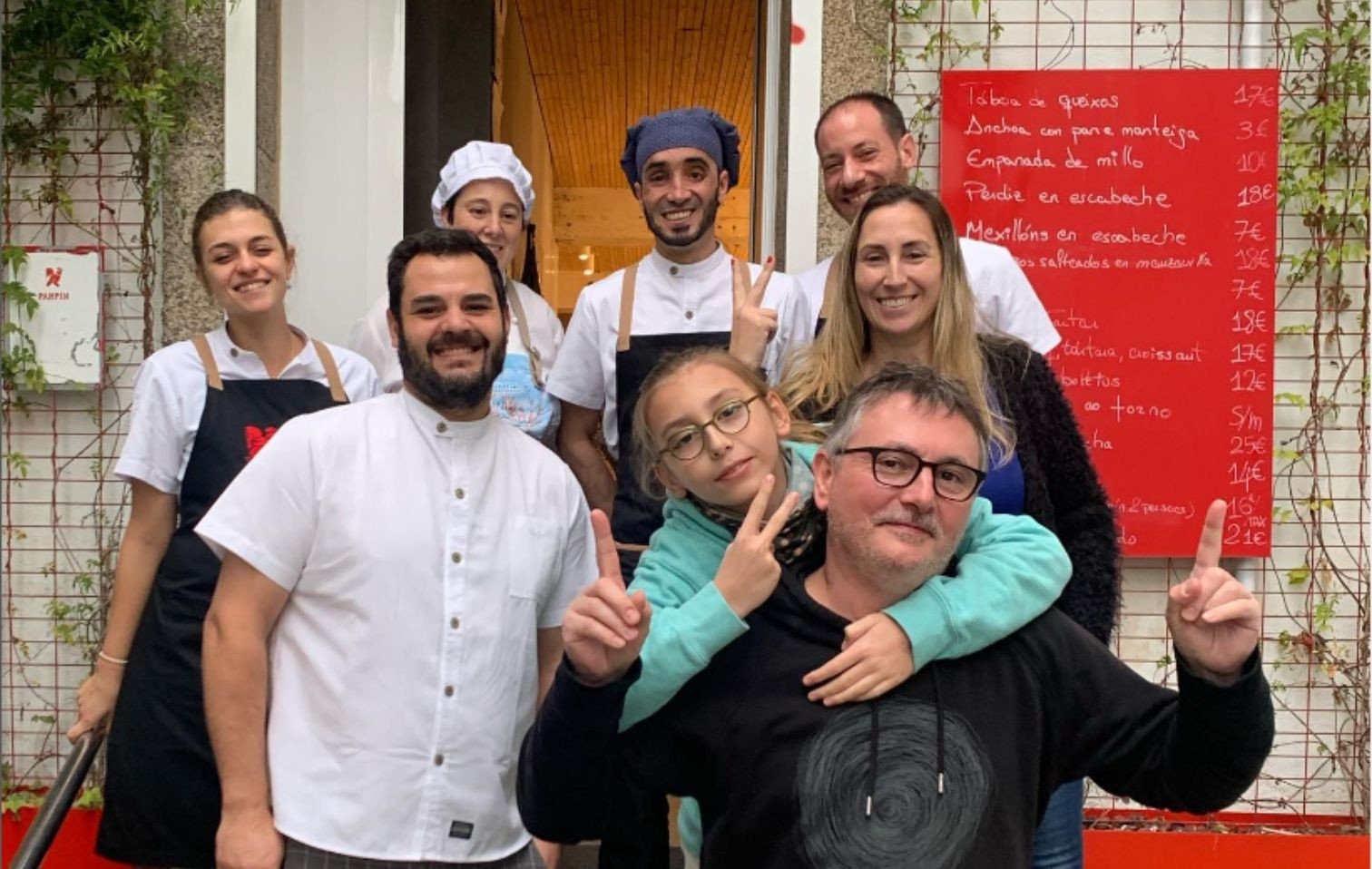In Santiago de Compostela, there is a small eatery that drives the greatest Spanish chefs, and not only, crazy. It's Pampin Bar, a little place with 1970s décor, where Alen Tarrio celebrates Galician tradition.
The restaurant
The shoemaker, it is known, has broken shoes. And great chefs do not deviate from the rule: they usually make do with a raffish or otherwise very quick ration, out of the human need to disconnect. Then when they go out to eat, often so as not to be influenced or incur a tedious déjà-vu effect, they prefer small places that are as easygoing and typical as possible. Ferran Adrià already said it: out and about, better the shabbiest dive bar than the fine dining wannabe.
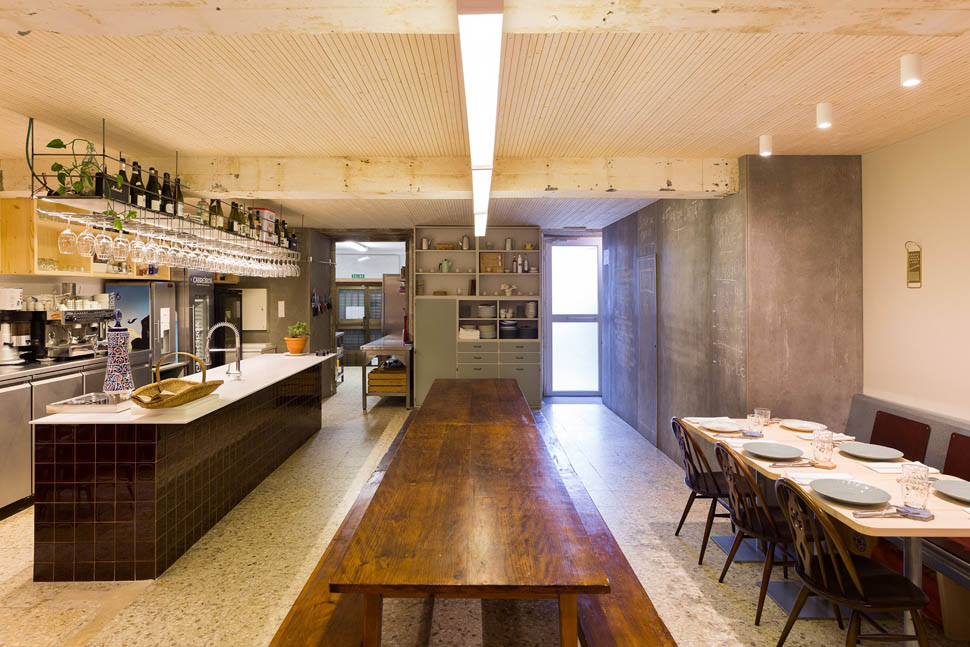
One address that is on the mouths of the best in Spain is Pampin in Santiago de Compostela, where among others have sat (and not for once) René Redzepi and Andoni Luis Aduriz. Credit to Alen Tarrio, 43, who in 2019 even cashed in on the award as Chef of the Year for the A Coruña Gastronomic Forum. "And winning it doing traditional cooking was an absolute surprise," he confides to El Pais.
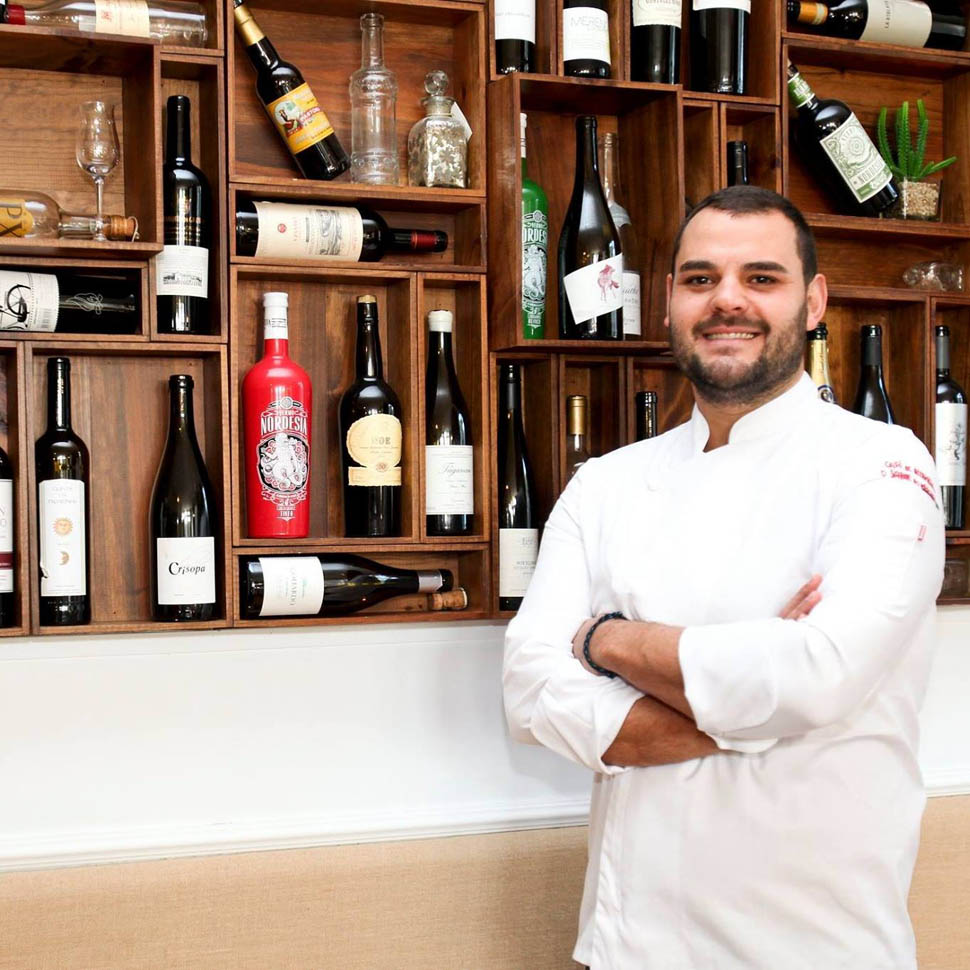
Tarrio is a son of art: he cut his teeth in his parents' restaurant, Meson Tarrio Lopez, a "real" place that unfortunately no longer exists, all tripe and goat stews, where customers were friends. And it was his father, convinced that cooking in Spain would explode, who recommended hotel school to him. Disparate experiences followed, including in fine dining, with Paco Morales and Marcelo Tejedor. "Then coming home in 2014, I asked myself where I could eat my mother's dishes and it was impossible."
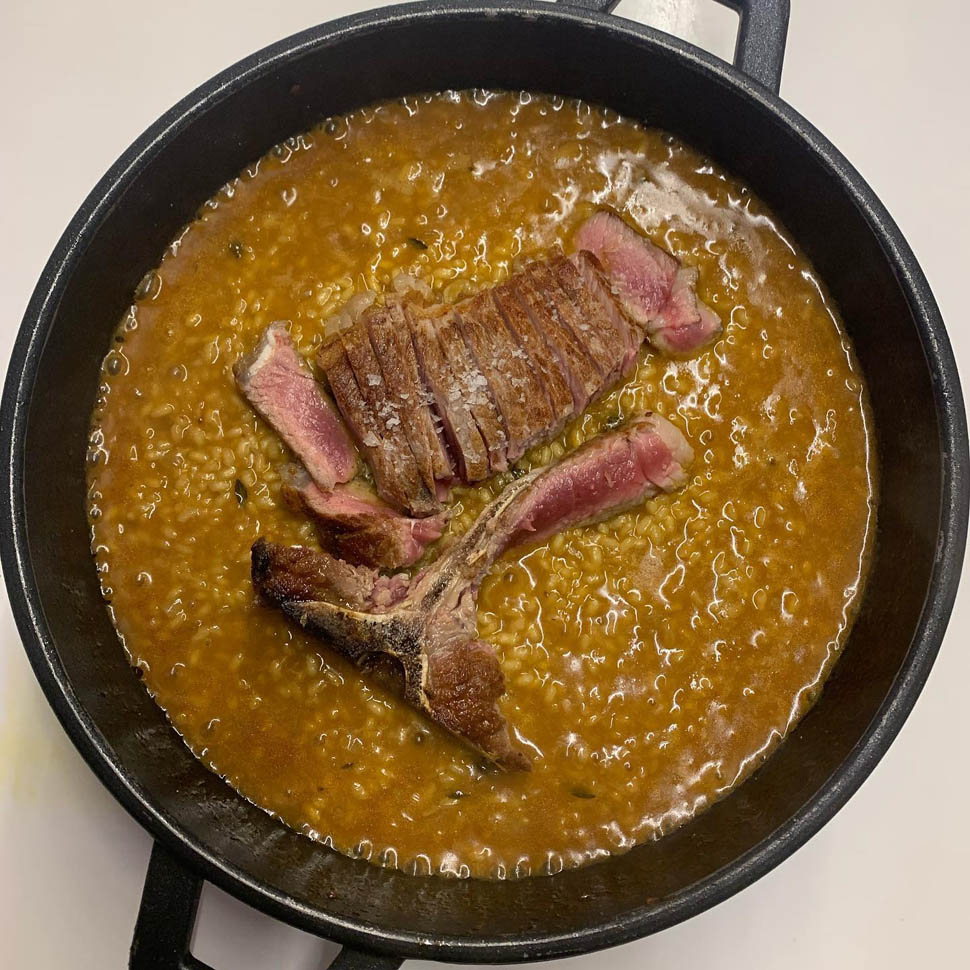
Hence the idea of opening his own place, where he would celebrate Galician cuisine. "And that's what I ended up doing, although I allowed myself some licenses, like rice or some flashes of French cuisine, which I really like." A dream that in 2017 took up residence in an old-fashioned, somewhat secluded, virtually windowless eatery that has nevertheless become a gourmet destination.
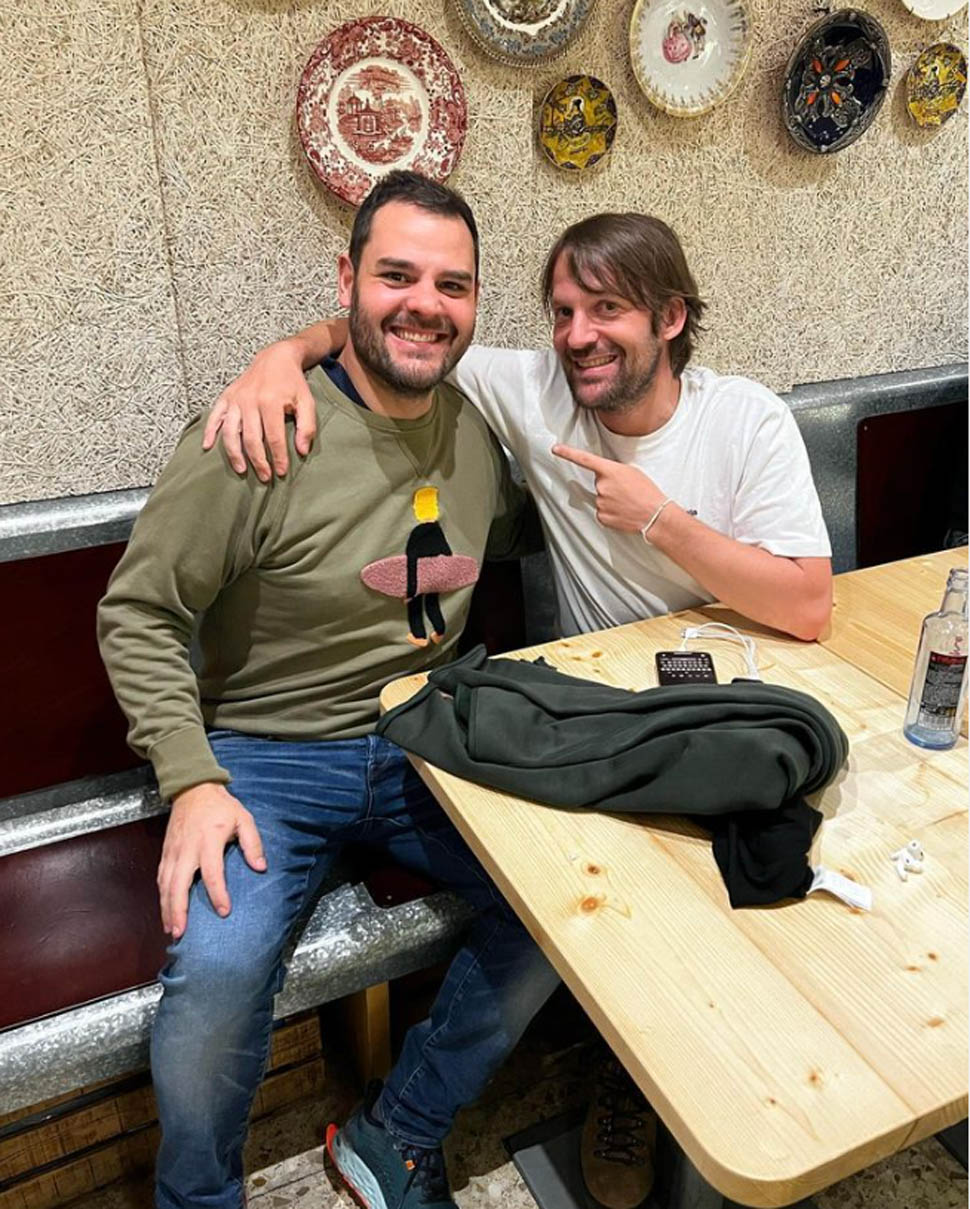
It was the Pampin Bar, a 1970s restaurant that Tarrio chose to preserve in its entirety, including the bathrooms. "It remained as it is because you can't touch it, and I'm glad that's the case. We just uncovered the beams and paneled the walls because it was very noisy." The proposal gradually refined: it is written daily on a blackboard, divided into appetizers, vegetables, rice, stewed or grilled meat, baked fish, and dessert. "And when the cooks see it, they are shocked."
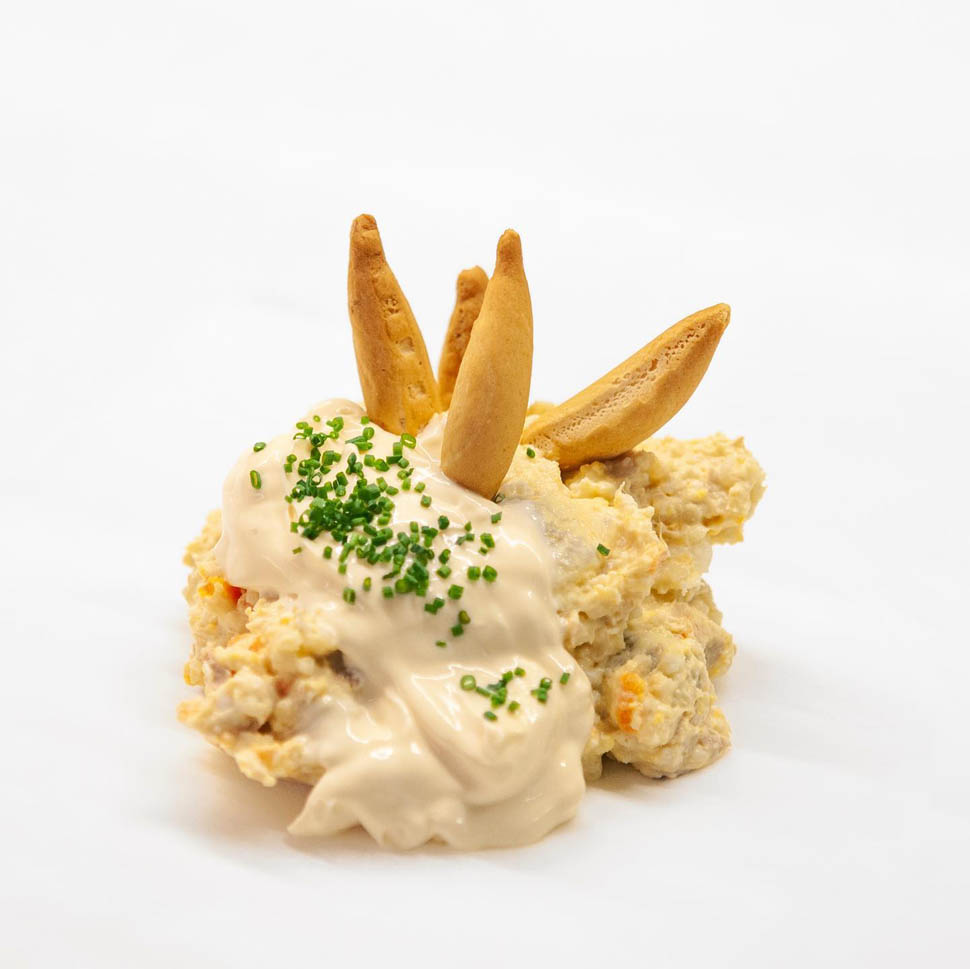
Typical escabeche and pâtés, in terrine or crust, are in great demand, in season also the empanadas. Enthusiastic Andoni Luis Aduriz, who renamed Mos's rooster in rice the "cococha di terra," alluding to codfish throats. But also seated several times were Paco Morales, Josean Alija, and René Redzepi, who reported visiting few restaurants with such personality.
